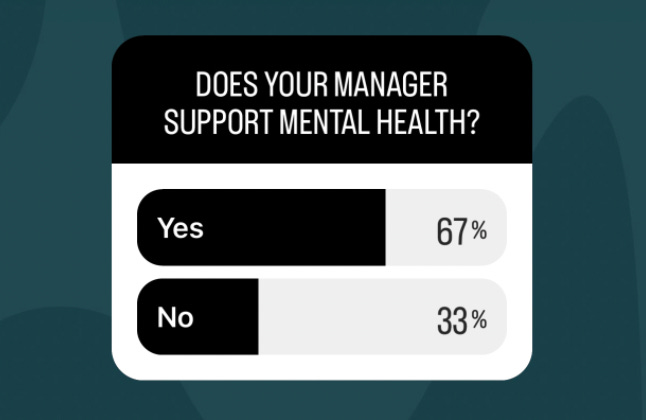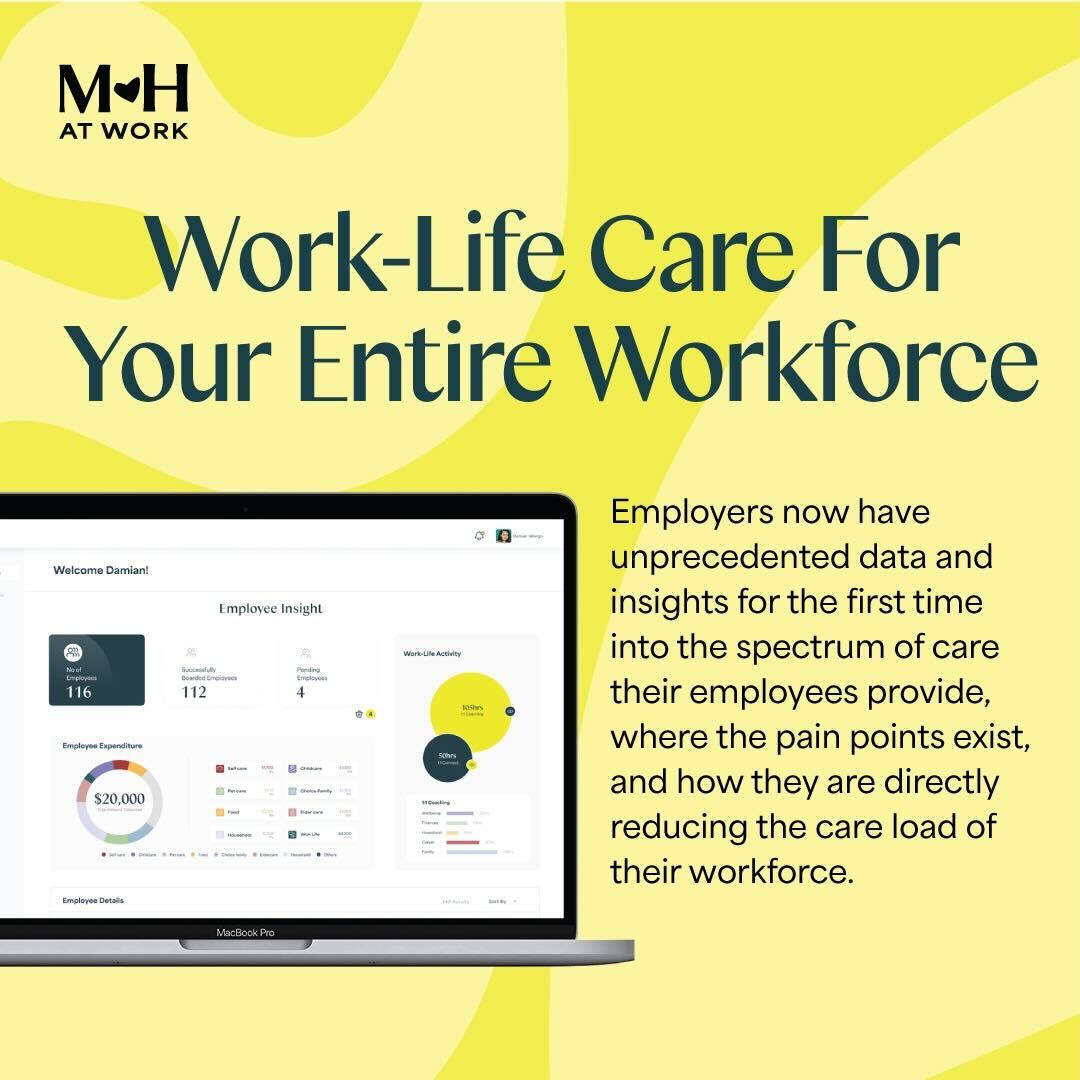We Need to Talk About Managers If We Want Better Employee Mental Health
Supportive bosses are crucial.
I’ve been covering caregiving and work-life issues for seven years, and there’s one conclusion I always come back to: It’s all about managers.
That’s especially true when it comes to employee wellbeing. Managers have just as much of an impact on people’s mental health as their spouse, and even more of an impact than their doctor or therapist, according to a new global survey by The Workforce Institute at UKG.
Companies can roll out an array of family-friendly benefits and wellness programs (as they should, if they want to retain talented employees), but those benefits won’t make a bit of difference if managers create team norms that totally negate them.
That’s also the conclusion of a global study by IBM, which found that more organizations are instituting programs to help improve gender equity and inclusion, like gender-blind job screenings and parental leave for women. Yet those measures haven’t managed to move the needle on getting more women into leadership roles, in part because “mindsets and cultures have not changed enough alongside the programs.”
In other words, too many managers still expect parents to work like they don’t have children.
I’ve heard from working parents with bosses who refuse to let them take care of a sick kid. Bosses who expect speedy responses at 7 p.m. Bosses who pressure employees to take as little leave as possible. Once, I interviewed a mom who was forced to breast-pump in a vertical filing cabinet. (Really.)
Some of these parents were even employed at companies that have been recognized as “best places to work” for moms and caregivers.
On the flip side, managers can also have a profoundly positive impact on their working parent employees.
Take, for example, one dad I interviewed who worked at a high-pressure consulting firm. His company offered 16 weeks of parental leave, but he was only planning to take a few weeks of leave after his first child was born.
“I was concerned with how my superiors would react if I took the full time, as the firm’s culture for fathers has not caught up to the policy,” he told me in an email.
In this dad’s case, a good leader made all the difference. A female mentor at his company joked, “If you don’t take your leave, I’m going to recommend they fire you.”
There are plenty of reasons why employees are struggling with their mental health right now, but chronic stress is a big factor. In the UKG survey, 40% of employees said they are “often” or “always” stressed about work, and 43% said they are “often” or “always” exhausted. Chronic stress can lead to burnout, which can lead to anxiety and depression.
Companies can offer free access to meditation apps and online therapists, but ultimately they must make reasonable demands of their managers, who in turn can make reasonable demands of the people they manage.
The good news: We asked our community members if their managers support their mental health, and 67% said yes. Clearly, there are lots of bosses getting it right.
We also asked them how their employer helps relieve their work stress. Based on their responses, and advice from experts, here are our top tips for making sure managers keep work stress to a minimum:
THE FIX: 3 KEY WAYS MANAGERS CAN HELP CONTROL WORK STRESS
Encourage communication. One study showed that employees who felt their managers were not good at communicating were 23% more likely than others to experience mental health declines during the pandemic. Managers must clearly define and communicate their expectations, while creating an environment where employees feel empowered to ask for what they need. One MH community member credited her company’s “open communication and input at all levels” for limiting work stress.
Be flexible. In our Modern Workplace Report, more than three quarters of caregiving employees say remote work improves their overall quality of life, and 77% of managers agree. In addition to flexibility about where they work, parents also want a degree of flexibility about when they work. Our community members frequently pointed to “flex schedules” as a way to reduce work stress. Managers should let employees tackle tasks from home, according to their own schedule, within a given time frame. Companies must shift away from rewarding face time and create a culture that celebrates efficiency instead.
Model healthy habits. Employees take their cues about culture from a company’s leaders. Even if an organization offers plenty of mental health benefits, employees won’t take them if they believe there’s a stigma. Same goes for family-friendly benefits. Caregivers won’t take them if they suspect it will hurt their career in the long-run. The best thing managers can do is be authentic and vulnerable, sharing their own struggles, and model healthy boundaries around work.
GET THE WORK-LIFE WALLET:
Stop wasting money. Redirect cash from ineffective EAP programs and directly empower your employees to meet their unique work-life needs. With Mother Honestly’s NEW work-life wallet, employees can access support for an array of work-life needs, including child care, elder care, pet care, self care, household chores and more. Employees link their debit card or bank account, and we screen and qualify work-life related expenses for reimbursement within seconds. Learn how your company can support caregivers with our Work-Life Wallet!
LOVE TO SEE IT
Rihanna makes history as the first pregnant woman to perform a Super Bowl halftime show. The star announced she is pregnant with her second child immediately following the performance, which earned rave reviews.
HATE TO SEE IT
The cost of child care is keeping parents out of the workforce. If child care costs a quarter of their paychecks, nearly half of parents with young children under the age of 5 say they would consider being a stay-at-home parent, according to a nationally representative survey of 2,091 U.S. adults The Harris Poll recently conducted on behalf of Fortune. Since U.S. families spend an average of 17.8% of their income on childcare (and much higher in some places), it’s likely these costs are pushing many parents out of the workforce.






